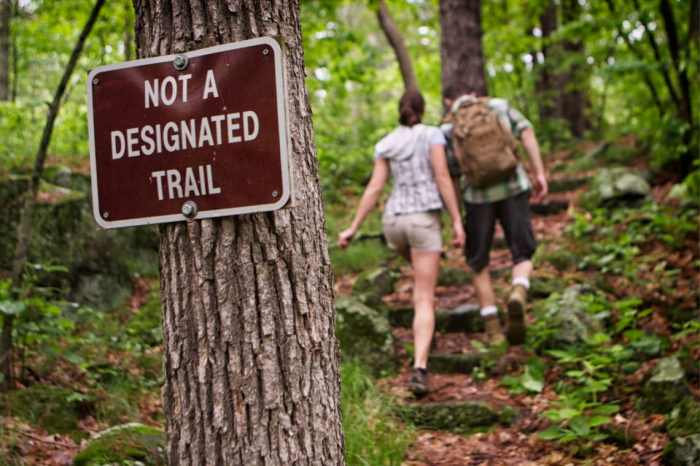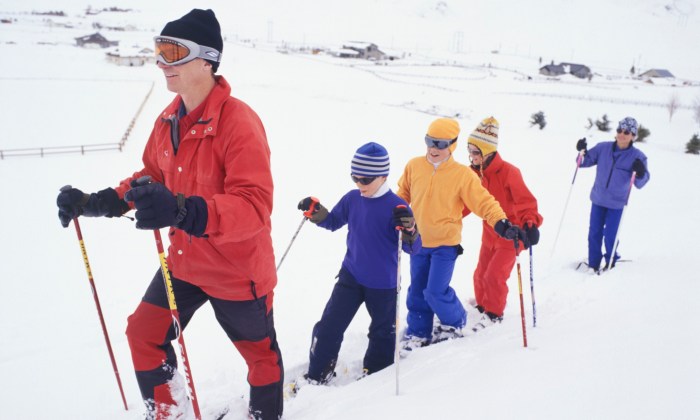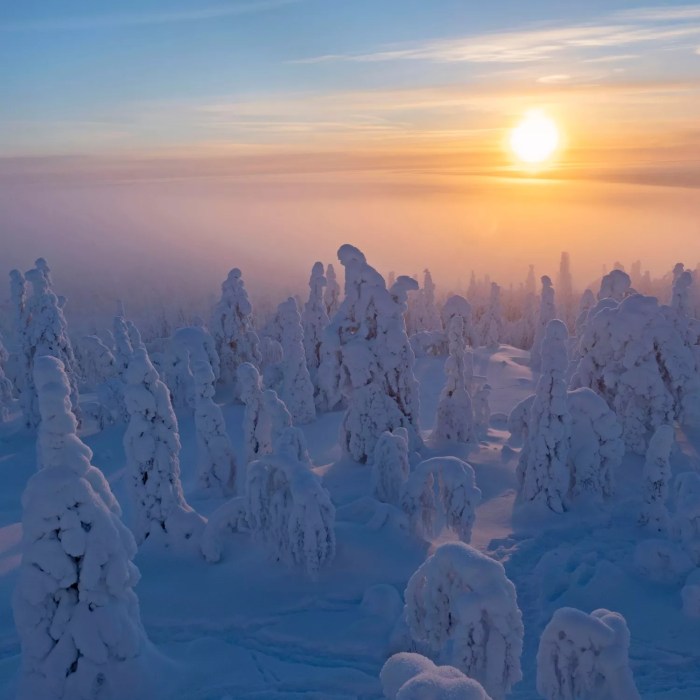
Eco-Friendly Off-the-Beaten-Path Adventures take you on a journey beyond the ordinary, where sustainability meets excitement. Embark on a thrilling exploration of hidden gems and untouched landscapes, all while treading lightly on the environment.
From hiking to scuba diving, these adventures offer a unique perspective on travel, blending adrenaline with eco-consciousness. Get ready to dive into the world of sustainable exploration like never before.
Hiking and Trekking Adventures
Embarking on eco-friendly hiking and trekking adventures allows nature enthusiasts to immerse themselves in the beauty of untouched landscapes while minimizing their impact on the environment. These trips offer a unique opportunity to connect with nature in a sustainable way, promoting conservation efforts and preserving natural habitats.
Benefits of Exploring Off-the-Beaten-Path Trails
- Off-the-beaten-path trails provide a more authentic and less crowded experience for hikers, allowing them to truly appreciate the tranquility of nature.
- Exploring remote areas helps protect fragile ecosystems from the negative effects of mass tourism, ensuring their preservation for future generations.
- By venturing off the typical tourist routes, hikers can discover hidden gems and experience a deeper connection with the natural world.
Sustainable Hiking Practices in Remote Areas
- Carry out all waste and litter, leaving no trace behind to maintain the pristine condition of the environment.
- Respect wildlife and plant life by observing from a distance and refraining from disturbing their natural behavior.
- Stay on designated trails to avoid damaging fragile ecosystems and minimize human impact on the environment.
Mountain Adventures
Preserving mountain ecosystems is crucial during adventures to ensure the sustainability of these fragile environments. By practicing eco-friendly activities in the mountains, outdoor enthusiasts can contribute to the conservation of biodiversity and protect these majestic landscapes for generations to come.
Eco-Friendly Mountain Activities
- Opt for low-impact activities such as hiking, bird watching, or nature photography to minimize disturbance to wildlife and vegetation.
- Participate in clean-up initiatives to remove litter and debris from mountain trails, helping to maintain the natural beauty of the surroundings.
- Support local conservation efforts and eco-tourism initiatives that aim to protect mountain ecosystems and promote sustainable tourism practices.
Mainstream vs Off-the-Beaten-Path Mountain Adventures
- Mainstream mountain tourism often leads to overcrowding, environmental degradation, and disturbance to wildlife, while off-the-beaten-path adventures offer a more authentic and sustainable experience.
- Exploring remote mountain areas allows travelers to escape the crowds, discover hidden treasures, and connect with nature on a deeper level, away from the impacts of mass tourism.
- Off-the-beaten-path mountain adventures provide a unique opportunity to explore pristine landscapes, support local communities, and contribute to the conservation of fragile mountain ecosystems.
Safari and Wildlife Tours
Integrating eco-friendly practices into safari and wildlife tours is essential for promoting responsible tourism and protecting endangered species. By adopting sustainable approaches, travelers can minimize their impact on wildlife habitats and contribute to the conservation of biodiversity in remote areas.
Endangered Species on Off-the-Beaten-Path Wildlife Tours
- Encountering endangered species such as the snow leopard, black rhinoceros, or orangutan on off-the-beaten-path wildlife tours highlights the importance of conservation efforts to protect these vulnerable animals.
- Observing wildlife in their natural habitats allows travelers to appreciate the beauty of these creatures and understand the importance of preserving their ecosystems for future generations.
- Responsible tourism practices, such as supporting local conservation projects and respecting wildlife habitats, play a crucial role in safeguarding endangered species and promoting sustainable wildlife tourism.
Impact of Responsible Tourism on Wildlife Conservation
- Responsible tourism practices, such as minimizing disturbance to wildlife, supporting local communities, and contributing to conservation initiatives, can help preserve natural habitats and protect endangered species.
- By raising awareness about the importance of wildlife conservation and sustainable tourism, travelers can play a significant role in promoting environmental protection and biodiversity preservation.
- Engaging in eco-friendly safari and wildlife tours not only provides memorable experiences for travelers but also contributes to the long-term sustainability of wildlife populations and ecosystems.
Extreme Sports Travel: Eco-Friendly Off-the-Beaten-Path Adventures
Exploring eco-friendly extreme sports destinations offers thrill-seekers the opportunity to challenge themselves while minimizing their environmental impact. By adopting sustainable practices and supporting conservation efforts, extreme sports enthusiasts can enjoy adrenaline-pumping adventures in harmony with nature.
Eco-Friendly Extreme Sports Destinations
- Destinations such as Costa Rica, New Zealand, and Norway offer eco-friendly options for extreme sports enthusiasts, with activities like surfing, rock climbing, and skiing that promote environmental stewardship.
- Participating in eco-friendly sports events and competitions that prioritize sustainability and conservation can inspire others to embrace environmentally conscious practices in their own adventures.
- Choosing eco-friendly gear, supporting local eco-tourism initiatives, and minimizing waste production are essential steps for extreme sports enthusiasts to reduce their environmental footprint and protect natural landscapes.
Environmental Activism in Extreme Sports
- Individuals like professional climbers advocating for environmental protection, surfers leading beach clean-ups, and skiers promoting sustainable practices are examples of how extreme sports enthusiasts can combine their passion for adventure with environmental activism.
- By leveraging their influence and platforms, extreme sports athletes and enthusiasts can raise awareness about environmental issues, support conservation projects, and inspire positive change within their communities.
- Through a combination of exhilarating sports and environmental advocacy, individuals can make a meaningful impact on conservation efforts, helping to preserve the natural world for future generations to enjoy.
Scuba Diving Destinations

Scuba diving allows enthusiasts to explore the underwater world, but it is essential to choose destinations that prioritize marine conservation and sustainability.
Eco-Friendly Scuba Diving Destinations
- Galapagos Islands, Ecuador: Known for its diverse marine life and protected marine reserves.
- Raja Ampat, Indonesia: Home to one of the most biodiverse marine ecosystems in the world.
- Bonaire, Caribbean: A leader in marine conservation with strict regulations to protect coral reefs.
Protecting Marine Ecosystems while Diving
- Respect marine life and coral reefs by avoiding touching or disturbing them.
- Choose eco-friendly dive operators and support sustainable dive practices.
- Pick up any trash or debris seen underwater to prevent harm to marine animals.
Tips for Sustainable Scuba Diving Practices
- Practice good buoyancy control to avoid damaging fragile corals and marine life.
- Use biodegradable sunscreen to protect coral reefs from harmful chemicals.
- Limit the use of single-use plastics by bringing reusable water bottles and containers.
Winter Sports Travel
Winter sports offer a thrilling way to enjoy the snowy season while connecting with nature. However, these activities can have a significant impact on the environment if not practiced sustainably. Here are some eco-friendly winter sports activities and tips to minimize your footprint:
Eco-Friendly Winter Sports Activities
- Opt for ski resorts with green certifications or initiatives, such as using renewable energy sources or implementing waste reduction programs.
- Choose cross-country skiing or snowshoeing, which have a lower environmental impact compared to downhill skiing or snowboarding.
- Participate in eco-friendly winter sports events or competitions that promote sustainability practices.
Environmental Challenges Faced by Winter Sports Destinations
- Climate change leading to unpredictable snow conditions and shorter winter seasons.
- Increased energy consumption and waste production at ski resorts.
- Potential habitat destruction and wildlife disturbance in mountainous regions.
Tips for Sustainable Winter Sports, Eco-Friendly Off-the-Beaten-Path Adventures
- Use eco-friendly gear made from sustainable materials and avoid single-use plastics.
- Support ski resorts and tour operators that prioritize environmental conservation and community engagement.
- Practice Leave No Trace principles by respecting wildlife, staying on designated trails, and properly disposing of waste.
Desert Expeditions

Exploring desert landscapes can be a transformative experience, but it’s crucial to do so in a way that preserves these fragile ecosystems. Here are some eco-friendly desert destinations and tips for sustainable desert expeditions:
Eco-Friendly Desert Destinations
- Joshua Tree National Park in California, USA, known for its unique rock formations and desert flora.
- Wadi Rum in Jordan, offering stunning sandstone mountains and Bedouin cultural experiences.
- The Namib Desert in Namibia, home to the iconic red sand dunes of Sossusvlei.
Preserving Desert Ecosystems during Expeditions
- Stay on designated trails to minimize soil erosion and protect fragile vegetation.
- Respect local wildlife by observing from a distance and not disturbing their natural behaviors.
- Carry out all waste and leave the desert as you found it to maintain its pristine beauty for future generations.
Cultural Significance of Desert Expeditions
- Desert expeditions offer a unique opportunity to connect with indigenous cultures and traditions that have thrived in harsh desert environments for centuries.
- Exploring desert landscapes can provide a deeper understanding of the challenges and adaptations required to survive in arid regions.
- Supporting local communities through responsible tourism can help preserve traditional knowledge and heritage associated with desert life.
As we conclude this adventure, remember that the path less traveled not only leads to unforgettable experiences but also contributes to a greener planet. Embrace the thrill of off-the-beaten-path adventures while leaving a positive impact on the environment for future generations to enjoy.
Question Bank
How can I ensure that my hiking trip is eco-friendly?
To make your hiking trip eco-friendly, stick to marked trails, carry out all your trash, and avoid disturbing wildlife.
What are some examples of eco-friendly winter sports activities?
Examples include cross-country skiing, snowshoeing, and using eco-friendly gear made from sustainable materials.
Why is it important to protect marine ecosystems while scuba diving?
Protecting marine ecosystems ensures the preservation of diverse marine life and the overall health of the oceans.



